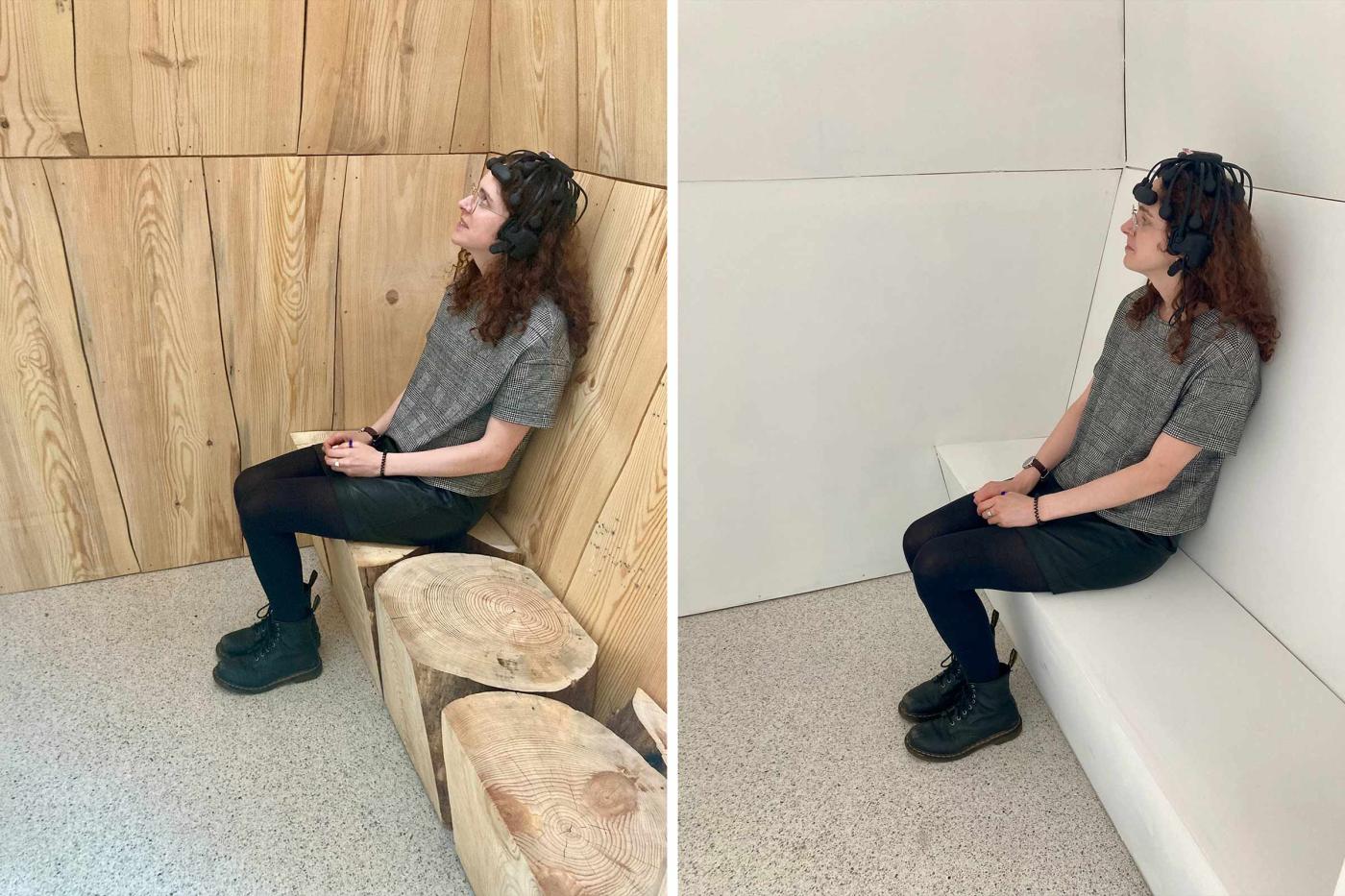OUR RESEARCH + PROJECTS
We are driving innovation in these fields by firstly, using cutting edge technologies — such as mobile neural imaging and daylight sensors; secondly, by applying novel research methods to the EP field — such as the use of cortisol as a biomarker of stress; and thirdly, by applying a thoroughly inter-disciplinary and integrative approach to addressing health problems. By further catalyzing on UVA’s institutional strengths and wider faculty, the Center for Design + Health is poised to build further research excellence in these niche areas.
— Mental Health
— Health Equity
— Natural Systems
A few of our current projects are highlighted below.
Mental health is one of the most pressing global health challenges of the future, with depression identified as the second most debilitating disease worldwide (WHO, 2014). In addition, rising stress is national public health priority with 31 percent of Americans likely to suffer from a stress related problem at some point in their lifetime — the worst rate in the world (WHO, 2011). The Center is identifying how the built environment can be designed to improve mental wellbeing focusing on:
- Stress research: we have built a stress-environment research consortium to develop new national capacity to measure and understand the link between the built environment and stress mitigation, addressing gender, race, and income disparities.
- Brain health and aging: we are applying new technologies – such as mobile EEG – to understand how to improve cognitive health in older people by, for example, offering environments that improve mobility - in turn building grey brain matter - and increasing access to daylight which impacts on circadian efficiency, sleep and cognitive abilities.
- Design of mental health care facilities: the design of psychiatric hospitals and behavioral units is a vital – and neglected - area of research to advance, particularly in relation to child and adolescent wellbeing, a niche area of expertise within the Center.
- Psychiatric disorders: the Center brings valuable research expertise in how the built environment can be designed to alleviate specific mental health problems such as schizophrenia and autism.
New Grant! Pod Project
In response to the Climate Futures Design Research Challenge, Center Director, Jenny Roe, and Center Assistant, Julie Mollica, are working with a multidisciplinary team spanning the A-School, Psychology, and Education at the University of Virginia. A-School faculty members, Katie MacDonald and Kyle Schumann, designed and fabricated experimental study pods drawing inspiration from past projects. This study aims to understand the psychological and neurological impacts of biophilic biomaterials such as wood in inhabitable architectural ‘pod’ prototypes using self-report psychological assessments and EEG neuroimaging techniques. This research seeks to determine the impact of pod immersion on students' subjective mood, perceived connection to nature, and neural activity.
Funded by the Climate Futures Design Research Challenge.
CDH Project Lead:
Jenny Roe is the Director of the CDH
(Photos by Katie McDonald)

FOCUSED COPE: ENHANCING RESILIENCE AND EQUITY IN URBAN COASTAL COMMUNITIES THROUGH THE CO-GENERATION OF COMMUNITY CAPITALS (2022-2027)

This five-year research initiative will explore how to best design infrastructure to combat the impacts of climate change, sea level rise and storm water management in coastal communities in Norfolk currently at risk from flooding. A key strategy is co-creating the design of new resilient infrastructure with citizens and key stakeholders in Norfolk. The research will include a carefully controlled natural experiment -- led by Jenny Roe -- that will quantify the mental health benefits of a green space intervention designed to combat the impacts of climate change in Norfolk and foster community wellbeing.
Funded by the National Science Foundation Coastlines and People Hub for Research and Broadening Participation, award value $5 million.
CDH Project Lead:
Jenny Roe is the Director of the CDH
IMPACT OF URBAN WALKS ON HEALTH AND WELLBEING ACROSS THE LIFE SPAN (2020-2022)

This project brought together partners from the University of Virginia, Virginia Tech, and the Science Museum of Virginia to explore how environmental stressors (such as air and noise pollution and heat stress) and mitigating strategies -- such as increasing tree canopy and green space -- affect the health benefits of walking in urban settings across lifespan. It replicates our earlier ESME study showing a positive effect of urban green space on cognitive and emotional wellbeing in older peopled aged 65 plus.
This extension study engaged participants in three age groups (young, middle-aged, and older adults) who undertook short walks in both green and busy urban areas during Covid-19 (Summer 2020). Our study found that walking in urban green space improved stress regulation (as captured by heart rate variability and self-reported perceptions of stress) and improved emotional wellbeing, and thermal comfort whilst also accounting for the impact of air quality and temperature on these outcomes.
This grant was awarded to the University of Virginia and partners, and funded by the Integrated Translational Health Research Institute of Virginia) (iTHRIV) 2020 to 2022.
CDH Project Lead:
Jenny Roe is the Director of the CDH
THE EMOTIONAL, PHYSICAL, AND COGNITIVE BENEFITS OF PURPOSEFUL GREEN SPACE ACTIVITIES ON SENIORS (2021-2022)

COVID-19 has had a severely detrimental impact on seniors across the globe. Older adults have suffered due to movement restrictions that have been detrimental to emotional, physical and cognitive health outcomes. During Covid-19, this project explored if different types of nature-based interventions could lead to improvements in emotional, physical and cognitive health outcomes amongst seniors. The three nature activities tested were: walking in nature (contemplative activity), engaging in physical planting (physical activity) and a citizen science-based activity (cerebral activity). Wellbeing outcomes include measures of physical activity, loneliness, belonging, working memory, psychological restoration and mood in seniors, aged 65+. Our study identified that all three interventions were beneficial to wellbeing in seniors and results will be published in 2023-2024.
Funded by iTHRIV (Translational Health Research Institute of Virginia) and the National Center for Advancing Translational Sciences (NCATS) of the National Institute of Health (NIH). Total Award Value: $40,000.
Partners:
iTHRIV, NCATS
CDH Project Lead:
Jenny Roe is the Director of the CDH
To find out more about the project contact Jenny Roe: jjr4b@virginia.edu
